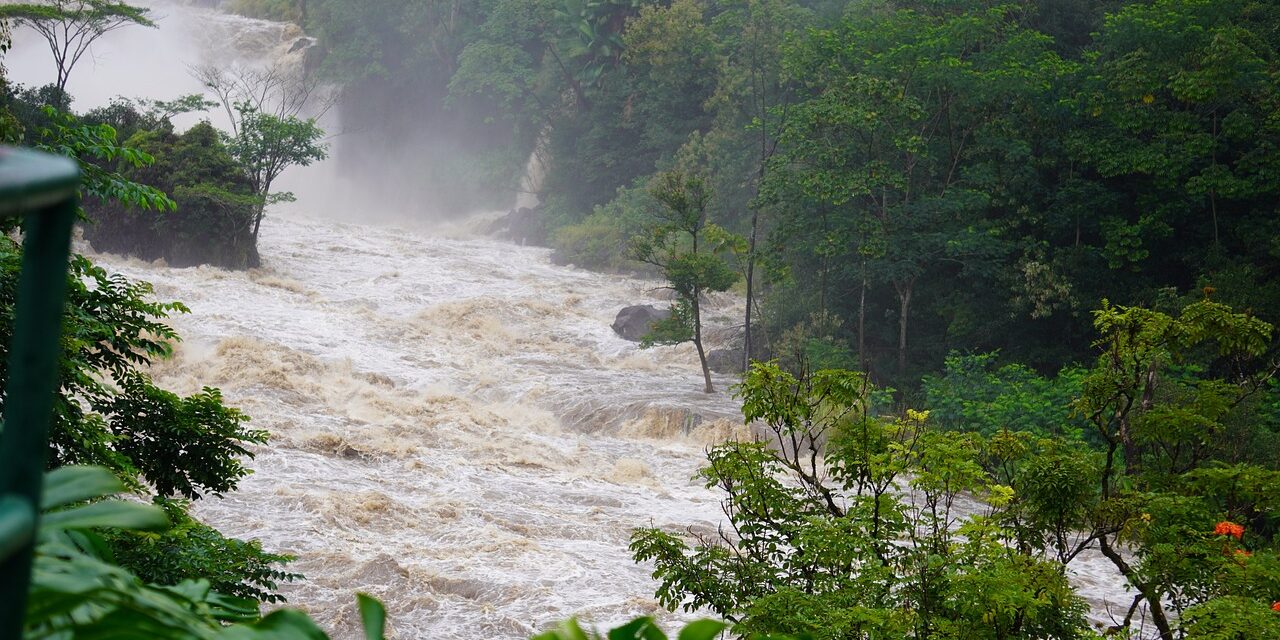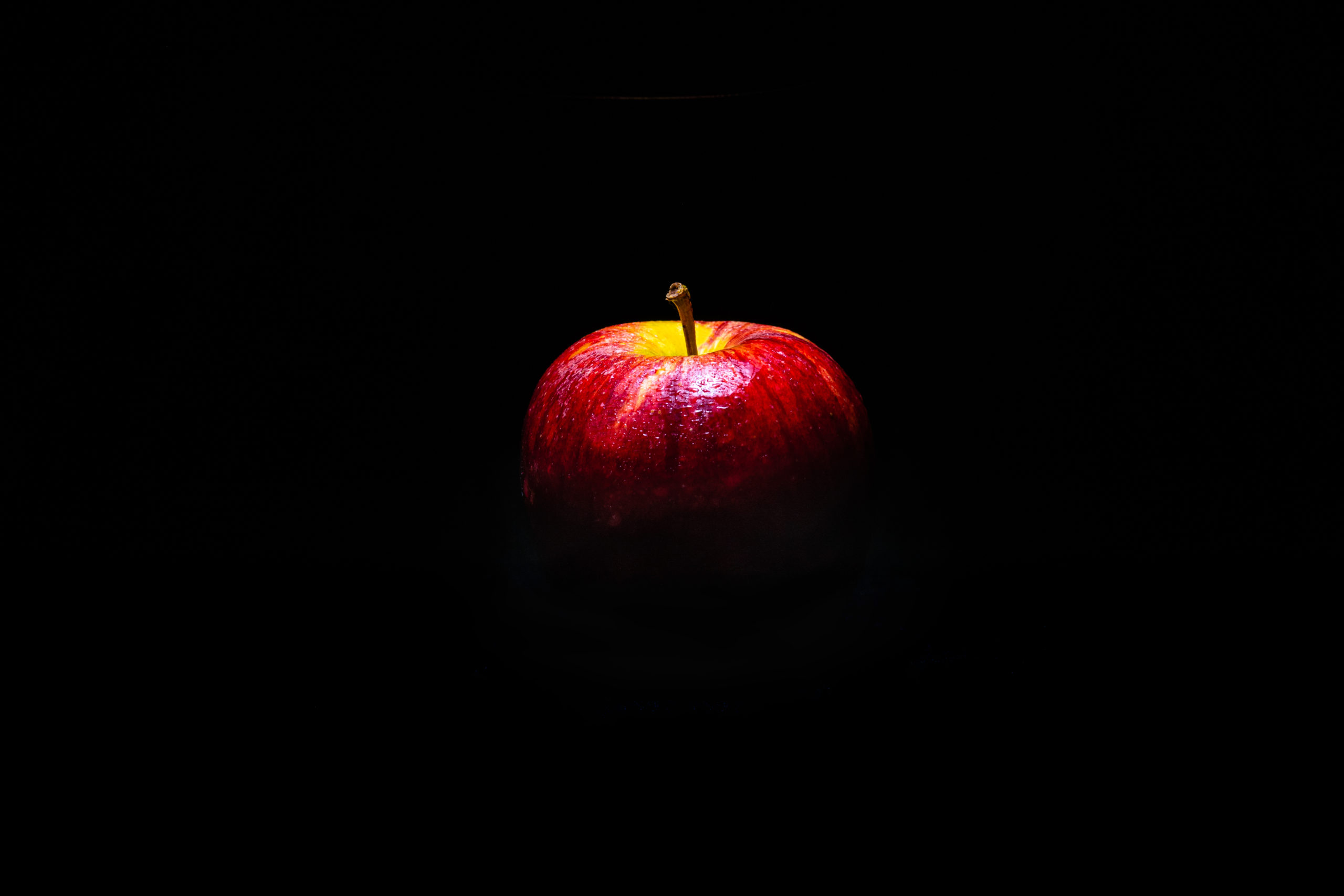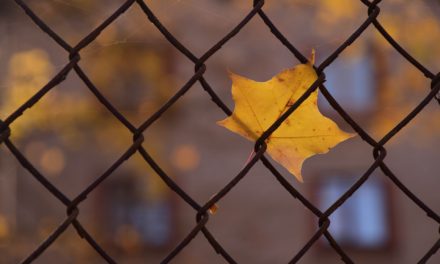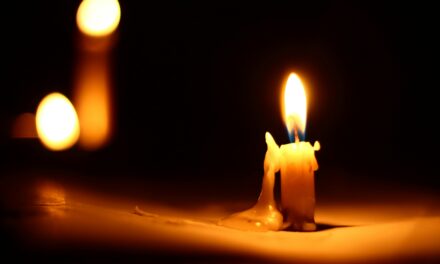It’s early in the morning, and I’ve driven ten minutes from my home outside Ventura, California to Santa Paula Creek, a small tributary that flows out of the mountains to the east. Over the past month this creek has become a place of spiritual rest and prayer for me. I like to go here in the mornings and listen to the water.
Today, however, I’m wary. For two weeks now, a series of “atmospheric rivers” have pounded my little corner of Southern California with rain and wind, and I’m curious about what I’ll find.
The trail along the creek is closed. I scamper down a side path to the rushing water, look upstream, and see why. There’s nothing left of it. It has washed away along with large swaths of brush, bushes, and entire trees that were previously holding the riverbank steady. The entire landscape has changed. What was once a sleepy, canopied bend of water is now an expanse of tumbled rock and earth framed by a steep bank rising dozens of feet overhead. It’s like a giant hand reached down from the hills and swept across the hillside in one fell swoop.
If said hand was made of water, that probably describes pretty well what actually happened. The creek itself has transformed through the torrent. It hardly seems fair to even call it a creek now. It’s at least three times as wide as it used to be. The water is louder and fast and talkative, gurgling and fomenting as it rushes down from the mountains to the northeast. Once clear and soothing, the creek is cloudy with dirt and silt—and God knows what else.
I marvel at the devastation, the open space carved out by the sudden fury of millions of raindrops coming together as one great cascade. But as I take a seat on an overturned rock, it is the water itself that gets my attention.
Oftentimes when I sit by a creek I think of a passage from Annie Dillard’s Pilgrim at Tinker Creek. Dillard has helped me come to see these little tributaries as conduits of abounding grace, a insight that has proved to be profoundly encouraging over the years as I’ve sought solace in the natural world.
“It has always been a happy thought to me that the creek runs on all night, new every minute, whether I wish it or know it or care,” Dillard writes of her local Tinker Creek in Virginia. “So many things have been shown to me on these banks, so much light has illumined me by reflection here where the water comes down, that I can hardly believe that this grace never flags, that the pouring from ever-renewable sources is endless, impartial, and free.”
Yes, it must be that not only Tinker Creek, but every creek in all creation flows to bless the righteous and the unrighteous, forever free and cleansing, grace incarnate. If this is so, what then do I make of the spectacle of wreckage in front of me, with its clouded (and surely polluted) water? The grace of Santa Paula Creek after these winter floods is dirty and destructive. It’s a far cry from the image of a spotless dove that I was taught to associate with Go. The rain with its flooding cleanses and heals, restores and reshapes the land, but the water itself? The grace flowing? It’s filthy. Not safe to swim in, much less drink.

I sit and wonder. Could grace be any other way? If there’s a glimmer of truth to the penal substitution theory of atonement that was instilled in me from my Calvinist upbringing, I see it now manifested before me. All these toxins and the debris, that stain, if you will – it has to go somewhere. And here is the river, swelled by rainwater, taking it on, scattering and absorbing it into itself, carrying it all away.
We don’t like to talk about grace getting dirty. “Keep oneself unstained from the world,” the book of James says in its definition of true religion (another oft-repeated admonition from my Reformed Christian roots). There was once a time when I drew the line at where I thought the “sins of the world” were and resolved to steer clear, give them a wide berth, flee from temptation and all that. Don’t watch those movies or read those books or run with that crowd or stay up alone past ten with your girlfriend.
Here on the ground, though, that does not seem to be the way of things. It’s certainly not the grace I am witnessing right now, which has cascaded from the high places and washed countless branches and sewage and human-made detritus into the sea. The first time I went to the beach in Ventura after the storms, I was stunned by the wall of limbs, branches, stumps, and litter washed ashore. The sea had pushed and piled it up along the tide line. It stretched out down the coast in the pale gray light of the overcast sky, eerily reminiscent of images of barbed wire and tank traps deployed in war to prevent an amphibious assault. Looking at it, I felt cut off from the ocean. The welcoming stretches of sand were gone, no safe entry to be found.
This too, however, is grace. To be cut off? Yes, perhaps for a time. Signs at the beach entrance warned passersby to not go in the water. Raw sewage had washed into the ocean with the rain. I looked out at the frothy churn of brownish-gray foam settling in between crashing waves. The seawater here is never pristine, but it looked downright sick, more like sludge than pure liquid.
We tend to think of natural disasters as just that – disasters. They are something to be fought and resisted at almost any cost, horrible forces of destruction that must be mitigated and defended against. The human response always seems to be more protection and contingencies: stouter floodwalls, reinforced levees, improved waterways, bigger dams, deeper reservoirs. Let us control the waters, capture them, bend them to our will, harness their power for our own economic might.
I hear colliding echoes of the Tower of Babel and Noah’s flood in this posture. In the end, the waters will rise and have their way over all the earth – the tragic irony being that our own environmental and climate abuses appear to be making these flooding events more extreme. Are our grand management schemes any different, really, than trying to build a tower to heaven?
Oh, but I must not be too quick to judge with these biting rhetorical questions. As I write this, the search is on for a missing five-year-old boy who was washed out of an SUV caught in floodwaters near San Miguel, a village several hours away in San Luis Obispo County. They had no warning. Rescuers were able to save the boy’s mother, but the waters were too strong. He slipped from her grasp and was gone.
The latest death toll from the floods in California this year is 22. Twenty-two souls. Twenty-two bodies. Twenty-two and counting.
Humanity has suffered worse from natural disasters, and yet who can quantify this loss? I think of that missing boy, torn from his mother’s fingertips, and weep. There’s no grace in a senseless loss like that. There’s no point, no theodicy I can summon to justify the drowning of such youthful and innocent life.
We must speak that truth: terrible things happen when natural disasters strike. At this very moment a mother and father are out there, buried in grief without a single goddamned answer. That is a present reality in this world.

But – and I do not use that word “but” lightly – we must also live in light of the reality that floods are a natural and necessary part of the ecosystem. Like wildfires, floods are a long, sometimes generation-spanning, rhythm of grace that ultimately serves to sustain life. They distribute sediment that replenishes natural fertilizers, and they recharge groundwater, seeping deep into the earth, percolating through layers of cleansing soil and rock until reaching aquifers that supply freshwater to lakes, springs, rivers, and wells.
In other words, floodwaters restore and replenish the land, renewing its capacity to bring forth life of all kinds. They are creative destruction at its most elemental.
Some of the most fertile and productive agricultural regions of the world, including the central valley of California where I grew up, are floodplains. One hundred and fifty years ago, the major river systems of Sacramento and San Joaquin routinely flooded in the winter and spring, forming vast flood basins and wide, shallow seasonal lakes. Marsh vegetation and perennial grassland and scattered valley oak thrived around these regions, and strips of dense riparian forest lined the major river and stream systems.
I can’t imagine what this landscape looked like before industrialization. Today it is all fields and orchards—or forsaken lake beds long-ago sucked dry and tumbleweed-dotted plains of oil wells gathering dust and rust.
Grace keeps pressing in though, like it has these past few weeks in the tremendous fury of wind and water, insisting that we slow down, take shelter, ascend to higher ground, surrender to the flow. Back at Santa Paula Creek, under a steady gray sky, I gaze into the cloudy water, seeing not my reflection but a holy mess, chaos unleashed for the sake of restoration.
“I never merited this grace,” Dillard says of the creek. She is insistent about her unworthiness. “I never merited this grace, water careening towards me, inevitably, freely, down a graded series of terraces like the balanced winged platforms on an infinite, inexhaustible font.”
This one thing I can say with confidence: California never merited these floods. Right and wrong. Good or ill. Such categories don’t apply. The rains just happened.
I had always assumed the Sunday School language I grew up with of God washing our sins away was metaphorical. But the winter storms have me second guessing this. Water, I’m realizing, is its own form of incarnation.
In church I was taught to keep turning back to Jesus on the cross. I’m still drawn to that story, but in recent years I’ve also found myself opening to a faith that is much more expansive and mysterious. Let there be Christ in the river too, Christ in the overflowing creek. Let there be Christ in the flash flood, bearing away our pollution, our pride, our excess, our frantic desire for control, taking it all to the infinite source. Give me the dirty, filthy Christ, the Christ who is mingled brine and sewage, the Christ in old tires and burned husks of trees washed up on shore, the Christ bearing the pesticides from our fields, absorbing them into himself, twisting and swirling in toxins. Give me the flooded and even now flooding Christ, poisoned and killed, sifted with the sediment, grieved and wrecked by uprooted homes and missing children, yet always returning with the winter rains, careening towards us inevitably and freely, remembering our sins no more.









This piece is itself full of grace. Andrew Collins gives us a window into the washings of God and the floods of an ailing earth. Thank you for this work.
Simply magnificent. Andrew, your words are a balm of grace.